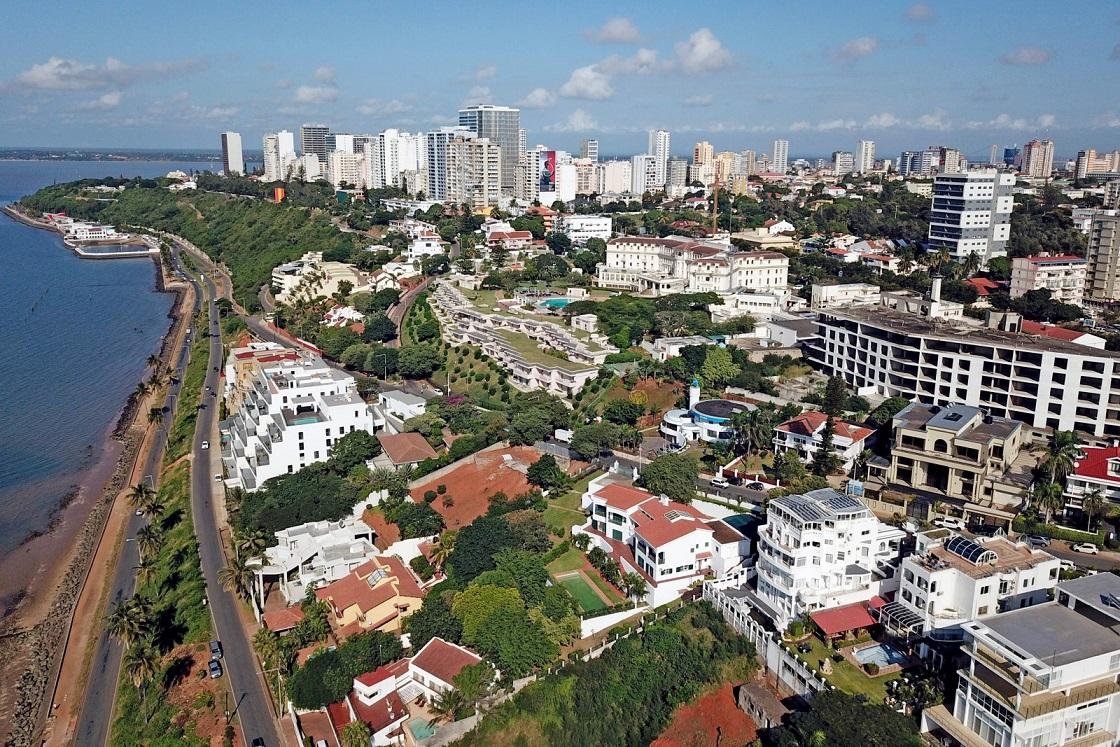Africa-Press – Mozambique. Fitch Ratings – New York – 21 Jul 2021: Fitch Ratings has affirmed Mozambique’s Long-Term Foreign and Local Currency Issuer Default Ratings (IDRs) at ‘CCC’.
KEY RATING DRIVERS
Mozambique’s ‘CCC’ rating reflects risks to debt sustainability from elevated debt levels, limited sources of financing combined with high fiscal and external financing needs, and still unresolved public-sector debt liabilities. The ongoing impact of the pandemic and security risks increase near-term expenditure pressures and, in the context of relatively limited sources of financing, could negatively impact medium-term growth prospects and increase challenges to debt sustainability.
Mozambique has not made a final decision regarding its participation in the G-20/Paris Club Common Framework to seek debt relief from official creditors, which we view as a distinct possibility. Comparable treatment by private creditors would likely be a condition for a deal. This could also affect Mozambique’s sole 2031 Eurobond.
After contracting by 1.2% in 2020, Fitch expects Mozambique to expand modestly by 1.8% in 2021 due to the ongoing impact of the pandemic (with the country experiencing a sharp increase in cases) on the services sector (46% of GDP), limited room for monetary and fiscal policy stimulus due to increased inflationary pressures in 1H21, and financing constraints. Fitch expects growth to recover to 3.4% and 4.0% in 2022-2023, thus approaching pre-crisis trend levels. Economic prospects are sensitive to adverse climate events and the evolution of the pandemic in Mozambique and key export markets. The vaccination campaign has faced delays (1% of the population vaccinated at early July) due to global supply constraints.
Total suspended its liquid natural gas (LNG) project in April, while ExxonMobil had already postponed its final investment decision on its USD30 billion project. The off-shore ENI project is on track to begin operations in 2022. According to official projections, gas projects were expected to boost growth by an additional 1.1pp in 2023 and over 2pp in 2024, but this positive impact is likely to be postponed by at least one year.
Political risks have increased. The intensification of the conflict with the Islamist insurgency in the gas-rich northern province of Cabo Delgado has escalated since the beginning of the year, leading to population displacements and the suspension of operations by Total. In addition to training support from the US and EU, the government has recently agreed to receive military assistance from neighboring countries to re-establish control in the area. The conflict could weaken domestic confidence, exacerbate pressures on public finances and further increase risks to debt sustainability.
Fitch forecasts the fiscal deficit (including grants) to widen to 5.2% of GDP in 2021, up from 3.3% of GDP in 2020, reflecting lower-than-budgeted growth and likely additional spending requirements related to the ongoing third-wave of the pandemic and security and social demands. Fitch expects a gradual fiscal consolidation with the deficit reaching 3.2% in 2023. The expenditure profile is rigid, with wages and interests estimated to equal 54% of total spending in 2021. The coupon rate on Mozambique’s 2031 USD900 million Eurobond will increase to 9% in 2024 from 5% currently. In addition, Fitch expects tax collections to return to pre-pandemic levels only gradually, while grant flows are set to decrease over the projection period. Expenditure under-execution, most notably in terms of capital spending, could ease fiscal financing requirements.
Financing options remain limited. Apart from the IMF through its Rapid Credit Facility (USD310 million) in 2020, official creditors have not resumed direct budget support loans, halted since the ‘public hidden debt’ scandal in 2016, although they have provided grants to the country. The government is reportedly interested in agreeing on a multi-year program with the IMF. Nevertheless, the timeline for negotiations remains uncertain. A program could help ease financing conditions and serve as policy anchor.
Fitch expects Mozambique to meet its 9.5% of GDP 2021 fiscal financing needs (deficit plus debt amortizations) through a combination of external official financing, domestic market issuance (given weak credit demand and available liquidity), use government deposits from late-2020 external loans and participation in the G-20’s Debt Service Suspension Initiative (DSSI). The DSSI has led to saving USD22 million (0.2% of GDP in 2020) and USD50 million (0.4% of GDP) in 1H21, with an additional 0.4%, if extended until end-2021.
Government debt rose to 121% of GDP reflecting largely the impact of the 18% metical depreciation (83% of debt is foreign currency denominated). Our debt metrics include arrears, including the loans to two former state-owned enterprises, of an estimated USD1.4 billion (10% of GDP) at end-2020. Although the government has challenged the validity of both SOE guarantees through legal disputes in the English courts, the risk remain that they may crystalize as a liability for the central government depending on the outcome of the legal proceedings. Fitch forecasts debt to remain broadly stable at 119% of GDP in 2023 reflecting gradual fiscal consolidation and economic recovery, moderate exchange rate depreciation and borrowing from ENH to finance Mozambique’s equity participation in gas projects.
External buffers remain adequate. International reserves were USD3.9 billion as of May, Reserve coverage should average 4.4 months of CXP in 2021-2022, down from a high 5.3 months at the end-2020, reflecting the USD302 million SDR allocation but also recovering import demand and the government’s use of foreign currency deposits. Fitch expects the current account deficit to average 35% of GDP in 2021-2022. As megaproject imports intensify leading to a widening of the external deficit, FDI and private sector borrowing related to the projects will be the main sources of external financing.
The central bank tightened policy significantly by increasing its policy rate by 300bps to 13.25% in early 2021 to address rising inflationary risks partly derived from the sharp depreciation of the metical in 2020. Fitch forecasts inflation to reach 5.9% at end-2021. Nevertheless, the metical appreciated significantly in 1H21, which combined with weaker domestic demand could mitigate inflationary pressures.
ESG – Governance: Mozambique has an ESG Relevance Score (RS) of ‘5’ for both Political Stability and Rights and for the Rule of Law, Institutional and Regulatory Quality and Control of Corruption. These scores reflect the high weight that the World Bank Governance Indicators (WBGI) have in our proprietary Sovereign Rating Model. Mozambique has a low WBGI ranking at 22th percentile, reflecting a track record of civil conflict, relatively weak rights for participation in the political process, weak institutional capacity, uneven application of the rule of law and a high level of corruption.
RATING SENSITIVITIES
FACTORS THAT COULD, INDIVIDUALLY OR COLLECTIVELY, LEAD TO NEGATIVE RATING ACTION/DOWNGRADE:
–Increased likelihood of a probable default event or restructuring of sovereign market debt instruments, for example through participation in the G20/Paris Club Common Framework.
FACTORS THAT COULD, INDIVIDUALLY OR COLLECTIVELY, LEAD TO POSITIVE RATING ACTION/UPGRADE:
–Public Finances: A substantial decline in the public debt-to-GDP ratio, for instance as a result of a sustained reduction in the budget deficit or favorable court decisions for Mozambique on SOE debt obligations, and sustained easing of financing constrains, for example as a result of an IMF program that unlocks additional external financing.
–Macroeconomics: Higher confidence in medium-term growth prospects, through the timely coming on stream of the LNG megaprojects.
SOVEREIGN RATING MODEL (SRM) AND QUALITATIVE OVERLAY (QO)
In accordance with its rating criteria, Fitch’s sovereign rating committee has not utilized the SRM and QO to explain the ratings in this instance. Ratings of ‘CCC+’ and below are instead guided by the rating definitions.
Fitch’s SRM is the agency’s proprietary multiple regression rating model that employs 18 variables based on three-year centered averages, including one year of forecasts, to produce a score equivalent to a Long-Term Foreign Currency IDR. Fitch’s QO is a forward-looking qualitative framework designed to allow for adjustment to the SRM output to assign the final rating, reflecting factors within our criteria that are not fully quantifiable and/or not fully reflected in the SRM.
BEST/WORST CASE RATING SCENARIO
International scale credit ratings of Sovereigns, Public Finance and Infrastructure issuers have a best-case rating upgrade scenario (defined as the 99th percentile of rating transitions, measured in a positive direction) of three notches over a three-year rating horizon; and a worst-case rating downgrade scenario (defined as the 99th percentile of rating transitions, measured in a negative direction) of three notches over three years. The complete span of best- and worst-case scenario credit ratings for all rating categories ranges from ‘AAA’ to ‘D’. Best- and worst-case scenario credit ratings are based on historical performance. For more information about the methodology used to determine sector-specific best- and worst-case scenario credit ratings, visit https://www.fitchratings.com/site/re/10111579.
KEY ASSUMPTIONS
Fitch expects global economic trends to develop as outlined in Fitch’s most recent Global Economic Outlook published in June 2020.
Fitch expects that LNG megaprojects will provide significant boost to growth, exports and public finances over the medium term, albeit with some delay due to the security situation.
REFERENCES FOR SUBSTANTIALLY MATERIAL SOURCE CITED AS KEY DRIVER OF RATING
The principal sources of information used in the analysis are described in the Applicable Criteria.
ESG CONSIDERATIONS
Mozambique as an ESG Relevance Score of ‘5’ for Political Stability and Rights as World Bank Governance Indicators have the highest weight in Fitch’s SRM and are therefore highly relevant to the rating and a key rating driver with a high weight. As Mozambique has a percentile rank below 50 for the respective Governance Indicator, this has a negative impact on the credit profile.
Mozambique has an ESG Relevance Score of ‘5’ for Rule of Law, Institutional & Regulatory Quality and Control of Corruption as World Bank Governance Indicators have the highest weight in Fitch’s SRM and are therefore highly relevant to the rating and are a key rating driver with a high weight. As Mozambique has a percentile rank below 50 for the respective Governance Indicators, this has a negative impact on the credit profile.
Mozambique as an ESG Relevance Score of ‘4’ for Human Rights and Political Freedoms as the Voice and Accountability pillar of the World Bank Governance Indicators is relevant to the rating and a rating driver. As Mozambique has a percentile rank below 50 for the respective Governance Indicator, this has a negative impact on the credit profile.
Mozambique has an ESG Relevance Score of ‘4’ for Creditor Rights as willingness to service and repay debt due to the sovereign’s protracted Eurobond default (resolved in 2019) and ongoing litigation related to unresolved public sector liabilities. As these factors constrain external sources of financing, this has a negative impact on the credit profile.
Except for the matters discussed above, the highest level of ESG credit relevance, if present, is a score of ‘3’. This means ESG issues are credit-neutral or have only a minimal credit impact on the entity(ies), either due to their nature or to the way in which they are being managed by the entity(ies).






